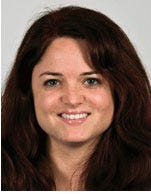It’s hard not to notice. There seems to be a changing of the guard in the medical device arena this year. And many of the CEOs who have moved on are from large, well-known firms. So let’s talk about it.
June 30, 2011
 J. Raymond Elliott made the surprise announcement in May that he will retire as CEO of Boston Scientific as soon as a replacement is found. Elliott was supposed to be the savior of the struggling company, so his departure is a blow to the firm, and Wall Street has not been kind to the company since the announcement. William Hawkins’s departure from Medtronic was also unexpected. Medtronic has broken its tradition of hiring from within to nab GE Healthcare’s Omar Ishrak to replace Hawkins.
J. Raymond Elliott made the surprise announcement in May that he will retire as CEO of Boston Scientific as soon as a replacement is found. Elliott was supposed to be the savior of the struggling company, so his departure is a blow to the firm, and Wall Street has not been kind to the company since the announcement. William Hawkins’s departure from Medtronic was also unexpected. Medtronic has broken its tradition of hiring from within to nab GE Healthcare’s Omar Ishrak to replace Hawkins.
David Schlotterbeck retired from CareFusion in February, after seeing the company through its transitional spin off from Cardinal Health. His departure is not as much of a surprise, given his long career.
Richard Meelia is one of a few not actually retiring. Meelia left Covidien this month to chair Haemonetics’s board of directors. Along the same vein, Christopher Begley is trading his role as CEO for executive chairman at Hospira.
Additional departing leaders include Immucor president and CEO Gioacchino De Chirico, David Floyd of DePuy Orthopaedics, and Orthofix’s Alan Milinazzo.
I asked MD+DI’s editorial advisory board to hypothesize about these egression patterns. Amid the envious comments from some of our members (“I wish I could retire, too,”) there were some interesting opinions.
Some pointed to the simple passage of time. The oldest members of the Baby Boom generation celebrated their 65th birthdays, and the medical device industry is celebrating its own milestones. Perhaps the age of industry (and its leaders) are just at the right time for transition. “The regulated medical device industry is 45 years old. I think a lot of us got in this industry somewhat by happenstance, but nonetheless, the first wave of professionals who got in would be of an age for retirement,” muses John DeLucia, vice president of regulatory affairs and quality assurance at ICAD. “I would say that many CEOs have been in the industry for 35-plus years. They’ve probably made enough money to retire, regardless of their age.”
Although the argument makes sense, it’s difficult to chalk these high-profile departures up to mere timing. Robert Reich, owner of LexaMed Ltd., says that CEOs are feeling the pressure to meet financial goals in a difficult economic and regulatory environment. Attorney Larry Pilot and Daniel McLain, cofounder and president of Walker Downey & Associates Inc., both pointed to the increased risks CEOs face for personal liability. Shifts in regulatory processes, not to mention uncertainty about the overall healthcare policy, could be enough to help an industry veteran set his mind to golf or fishing. “Retirement appears to be a viable option under such conditions,” Reich says.
Whatever the reasons for the CEOs’ departures—and there are probably many more not explored here—their replacements will face significant challenges in the next few years. The industry is changing, and new blood will have to demonstrate global perspective and new energy. The latest crop of CEOs have their work cut out for them.
Heather Thompson
[email protected]
About the Author(s)
You May Also Like

